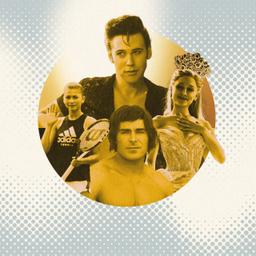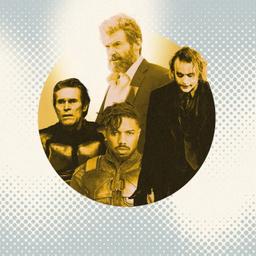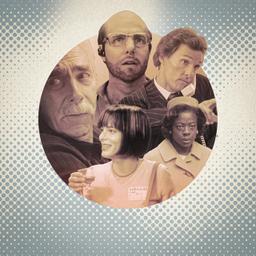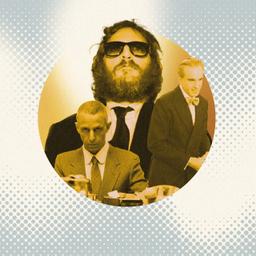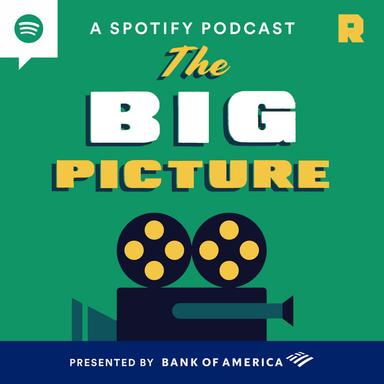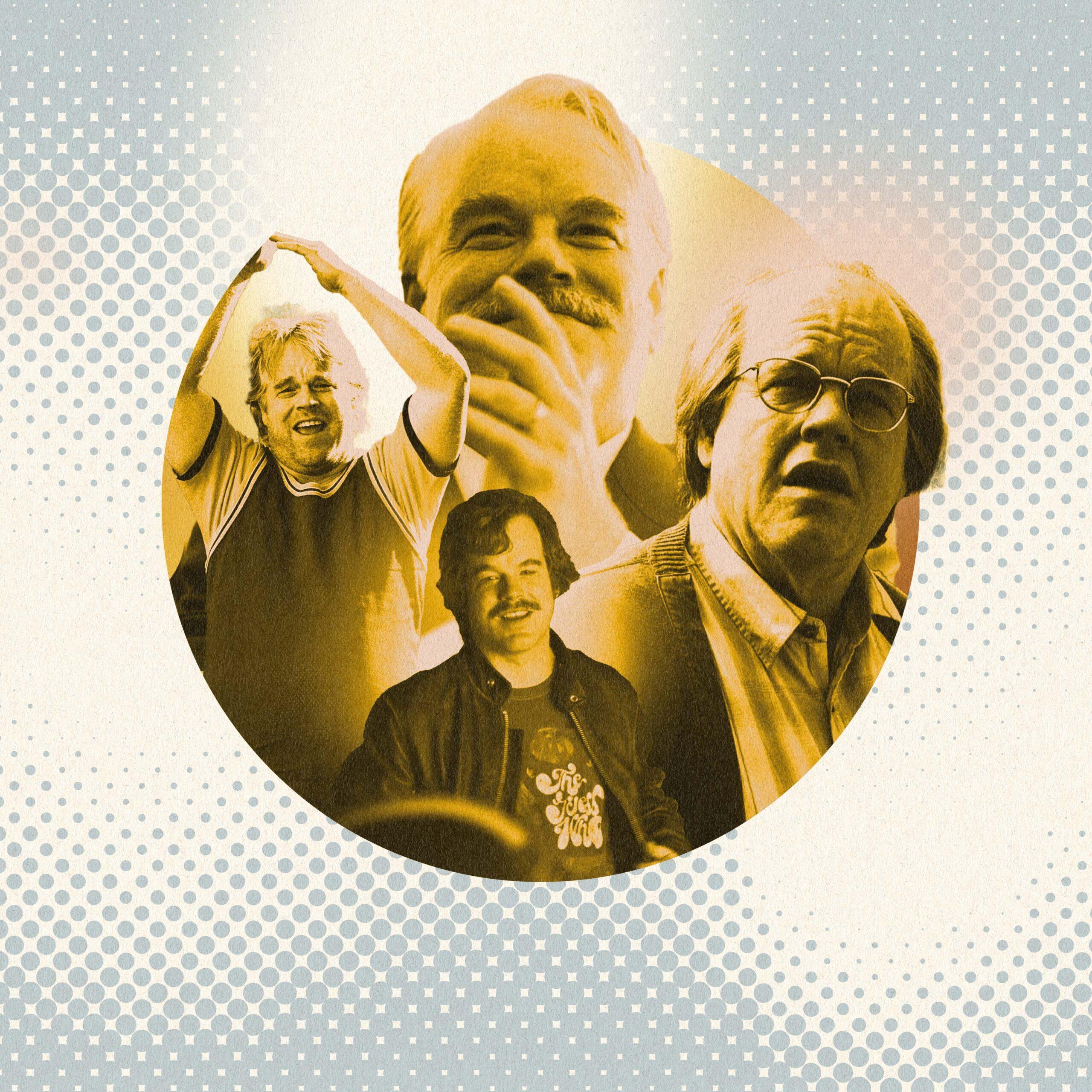
“When you smoke, you think,” said Philip Seymour Hoffman in a 2002 interview with The Believer. “It’s a pleasurable thing, and not a duty.”
I think about this observation whenever I go on YouTube and watch this bit from Paul Thomas Anderson’s 2012 psychodrama, The Master—a bit that didn’t make it into the final cut and in which Hoffman effectively plays himself. There’s something perverse about this being my favorite PSH scene ever, I know. Considering that Hoffman was arguably (probably? definitely?) the greatest American movie actor of the 21st century—the most consistent, the most versatile, the most likely to hold up his end of the bargain, whether trudging through a Sundance indie or gleefully torturing Tom Cruise in close-up—surely there’s a better passage to illustrate his brilliance than one where he fails to hold it together, where the stamina and concentration that made him a legend onstage break. And yet.
As a self-styled cult leader trying to grow his tent in postwar California, Lancaster Dodd is one of Hoffman’s most charismatic turns; it has to be because Anderson’s film is a meditation on animal magnetism, on the thin, permeable boundaries between seduction and indoctrination. The character is based on Church of Scientology impresario L. Ron Hubbard, but it is expressly not an impersonation; the raconteurish style Hoffman devised for the role is more reminiscent of Orson Welles, a showman with his own notions of susceptibility.
Beneath the faint strains of “Slow Boat to China” on the radio, we watch Dodd imperiously extend his cigarette to wayward seaman Freddie Quell (Joaquin Phoenix), who lights it with the eagerness of a supplicant (or the chivalry of a lover) before puffing his own. “I like Kools,” says the older man in the deep, declamatory baritone that he uses variably to sway roomfuls of followers and mindfuck wannabe disciples one-on-one. “The minty flavor.”
And then, suddenly, a crack in the facade. Something about the precise pronunciation of that last phrase—“minty flavor”—with such Wellesian grandiloquence punctures Phoenix’s focus. Sputtering. Wheezing. Giggles. “Fuck you,” Hoffman manages through tears of mirth. “That was the greatest thing ever,” his costar replies before they settle down to try it again, with the same catastrophic results. “Come on, this is worth getting,” insists PTA from somewhere off camera. It sounds like he’s been laughing as well. The third time is not quite the charm, but they survive just long enough for something salvageable. If you watch The Master, you’ll notice that the interval between Hoffman sighing “the minty flavor” and the cut to Kevin J. O’Connor disembarking a boat is pretty much subatomic.
I like to think of Hoffman in this moment—one that finds him surrounded by great collaborators and friends, ringed by smoke with a cigarette in hand—because otherwise, cogitating too hard on the truncated nature of his life and creative output makes me terribly sad. It’s foolish, even irresponsible, to feel possessive over artists we don’t know or to pretend somehow that we do know them through their work. And yet.
There are plenty of accounts of what kind of person Philip Seymour Hoffman was—as an actor, as a director, as a friend, as a family member. Some of these are by-the-numbers showbiz encomiums, cobbled together at a distance and on deadline for various anniversaries, a by-product of the obituary–industrial complex. Others are so intimate, specific, and beautiful that they feel like extensions of their subject’s art. The 2017 essay by Hoffman’s wife, the costume designer and podcast producer Mimi O’Donnell, is one such example—a harrowing and humane reflection on love, loss, and the diabolical nature of addiction, written with a clarity that feels hard-earned and adorned with grace notes. There’s that anecdote about Hoffman, not yet a father, casually plucking a rambunctious scooter-riding 4-year-old off the curb in New York City. “Without missing a beat,” O’Donnell recalls, “Phil reached out and with his big, beautiful hands guided him back onto the sidewalk, patted him on the head, and said, ‘You’re good, buddy.’ … It was gentle, it was firm, it was kind.” While I was writing this piece, GQ published a new interview with Hoffman’s son, Cooper, in which he admits that he anxiously imagines what his father would have thought of his work. “Not that he would judge it, because he was a very empathetic person,” Cooper clarifies. “He would probably—hopefully—hold my hand through all of it.”
The recurring image between these two remembrances—of hands, and of holding—is too acute to be a coincidence. It gets at something essential about Hoffman’s acting, how he gathered himself and others up on-screen and connected to the rest of us in the audience at the same time. There are performers who excel at withholding, at forcing a lid on their motives and emotions, making us lean in. There are others who are virtuosos of exposure, who keep their nerves raw and come into focus mostly by falling apart. Hoffman’s gift—his genius—lay in his ability to evoke so many postures and psychologies between these extremes; not the “Everyman” persona posthumously thrust on him by critics trying to reconcile his nontraditional physical qualities as a movie star but a tangible, uncanny feeling of reaching, sometimes futilely, sometimes with an irresistible force, outward and inward at the same time. Few actors have ever seemed so physically present on-screen or so tactile; the fact that he only ever made one movie in 3D (his valedictory, villainous The Hunger Games: Mockingjay—Part 1) makes sense, since the dimensionality of his acting would’ve basically rendered the format redundant.
There were, to be sure, times when Hoffman was able to successfully flatten himself out: Anybody looking for profundity in his appearance as the obsequious Beverly Hills factotum in The Big Lebowski is wasting their time, even if the servile, nervous tension of his line readings is Hall of Fame stuff all the same. (“That’s marvelous,” Brandt chokes when Bunny Lebowski offers to service the Dude by his boss’s poolside, his rictus grin grimly implying the opposite.) Ditto the scaly, blue-blooded barracuda Freddie Miles in The Talented Mr. Ripley, a living, smirking manifestation of Tom’s insecurities about his class and sexual orientation. (“Tommy, how’s the peeping?”) These and other expert supporting parts underlined Hoffman’s utility-player status in the late 1990s, a position he elevated to an art form in his gigs with Anderson, who’s told the story of falling in love with the actor while watching him churn around the edges of Scent of a Woman. “He’s for me, and I’m for him,” Anderson thought, and in Hard Eight, Boogie Nights, and especially Magnolia, Hoffman pumped so much imagination into his characters that they threatened to burst at the seams.
Hoffman’s first great performance of the 21st century, meanwhile, was more than background character work and less than a lead. Cast as the legendary rock critic Lester Bangs in Almost Famous, he didn’t just honor the memory of a relentless tastemaker and word-slinger. He turned Bangs’s formidable legacy inside out and gave Cameron Crowe’s nostalgic Behind the Music episode à clef its rumpled gravitas. “I’m always home,” says Lester over the phone to his underage Rolling Stone correspondent protégé, William (Patrick Fugit). “I’m uncool.” On the page, that line is a bit precious, but the sense of almost accidental eloquence in Hoffman’s delivery—the way Lester’s self-deprecation comes off less as a practiced pose than as something that just popped into his head—radiates with an aching spontaneity.
“My original take on this scene was a loud, late night pronouncement from Lester Bangs. A call to arms,” wrote Crowe on his blog, The Uncool, in 2014, after news had broken of Hoffman’s death. “In between takes, [Hoffman] spoke to no one. He listened only to his headset, only to the words of Lester himself. (His Walkman was filled with rare Lester interviews.) When the scene was over, I realized that Hoffman had pulled off a magic trick. He’d leapt over the words and the script.” Crowe won an Academy Award for Almost Famous’s script; his admission that Hoffman had transcended his own Oscar-worthy material speaks volumes.
Hoffman would, of course, win some awards himself a few years later for Capote, which also required him to play a historical figure—one who was notorious in his life for doing the best imitation of himself. How do you portray a flamboyant fabulist who wore his eccentricities on his sleeve, the only New Yorker writer who doubled as his own cartoon? In a 2005 interview with Charlie Rose, Hoffman talked about modulating the hard, cool surfaces of Truman’s public persona—accessing the flexible interiority of a writer for whom empathy and manipulation were scarily interchangeable. “[He’s] whatever he needs to be,” Hoffman explained, suggesting that despite the obvious and remarkable physical transformation required for the part—the high, mellifluous voice; the delicate, measured gestures; the way Truman brandishes his cigarette holder like a knight’s standard—there was a troubling element of self-portraiture in the work as well.
Personally, I’d have given Hoffman his Oscar for a different movie—maybe 2004’s Along Came Polly, in which he didn’t so much lower himself to the generic material as meet it with humility and enthusiasm on its own terms. The movie is a glossy mid-aughts-style romantic comedy with Ben Stiller puttering serviceably on the fumes of There’s Something About Mary and Meet the Parents. Fortunately, Hoffman—cast as the former-child-star best pal of Stiller’s Reuben—spends his scenes getting high on his own supply. “He was anxious because he hadn’t been in a comedy and didn’t want to look stupid,” director John Hamburg recalled to GQ last year. Ultimately, Hoffman was able to tweak the self-abasement he’d already cultivated in the pitch-dark likes of Happiness and make it function in a multiplex context. Sandy Lyle is a trainwreck—a face-planting, airballing, stress-sharting albatross around Reuben’s neck. He’s also indelibly sweet and funny, imbuing a machine-tooled movie with some soul and ultimately living up to his own pride-before-the fall assessment that the best man is in the house.
In terms of sheer scale, the biggest performance Hoffman ever gave was as the harried theater director in Synecdoche, New York, a role that basically required him to inhabit a thinly veiled (yet deeply layered) avatar of his creator, Charlie Kaufman. Leaving aside the eerie prescience of having Hoffman play a theater director sweating his production of Death of a Salesman—a play the actor would tackle in real life in 2012 under the direction of Mike Nichols—there’s something retrospectively painful about his frighteningly lived-in evocation of psychic and physical deterioration. The character’s surname, Cotard, is a reference to a condition known as “walking corpse syndrome,” and as Caden’s massively complex art-imitates-life-imitates-art theater piece spirals out of control, Hoffman accordingly hollows himself out into a pale, trembling husk. The glorious—and troubling—paradox of Hoffman’s performance is that the more Caden’s life force ebbs away, the closer he becomes to us; Hoffman’s fragility in the closing, metaphysically ambiguous scenes as his control-freak character finally cedes control to one of his many doppelgängers and takes a final, fatal piece of stage direction (“die”) is as shivery as a late-afternoon stroll through a mausoleum.
There are plenty of other worthy PSH performances, whether in good movies like Before the Devil Knows You’re Dead (a note-perfect portrait of a failson squandering his birthright) or lousy ones like Charlie Wilson’s War (in which he gives Aaron Sorkin’s West Wing–ish dialogue the thorough masticating it deserves). Speaking of Sorkin: Art Howe may have been ticked about how he came off in Moneyball, but he harbored no ill will toward Hoffman for the unflattering, deadpan tenor of his portrayal, calling him a “tremendous talent.” Suffice it to say that in a movie that plays fast and loose with the facts, Hoffman etches a persuasive portrait of reactionary, old-guard arrogance. Whether or not he’s convincing as Howe, he’s completely believable as a baseball lifer who doesn’t want to believe that he’s being lapped on the basepaths by free-thinking number crunchers, and his stoic, arms-folded no-selling of Brad Pitt’s cleanup-hitter charm offensive is consistently hilarious.
There’s a temptation, given their joint pedigree, to value Hoffman’s collaborations with PTA above and beyond the rest of his filmography, and a case can be made for Lancaster Dodd as his signature role: an out-and-out tour de force in which an actor always willing to subordinate himself to the needs of a project finally gets to hold court. It’s a running gag in The Master that Lancaster believes he contains multitudes—“I am a writer, a doctor, a nuclear physicist, and a theoretical philosopher,” he drones confidently upon meeting Freddie—and the skeleton key to Hoffman’s performance is how he deftly unlocks the compartments disguising unsavory behavior: the common denominator between his unfortunate choice to loudly address a detractor as “pigfuck” during a fundraiser and the mortifying noises he makes behind closed doors while getting a hand job from his wife, Peggy (Amy Adams), is how deeply, desperately involuntary they are. Maybe that’s why the “I like Kools” outtake resonates so much—not because it breaks the spell of Hoffman’s acting in The Master but because it feels of a piece with it and with the furious alchemy of expression and sublimation in his work as a whole.
I had originally planned to end this piece where I started it, by talking about Hoffman smoking those cigarettes in The Master, caught helplessly and happily between the duty and pleasure that defined his art. But then I decided to take another look at a movie I hadn’t seen in a decade, Anton Corbijn's 2014 John le Carré adaptation, A Most Wanted Man, starring Hoffman—who died before its release—as a beleaguered German intelligence agent. His Günther Bachmann is more wary of his own government than of the suspected terrorist financiers he monitors through a sophisticated surveillance network of informants and middlemen; a self-proclaimed “cave dweller,” he alienates friends and rivals alike with his refusal to perform social niceties.
When A Most Wanted Man first came out, it was understandable that critics connected its protagonist’s sclerotic dilapidation to the actor playing him. Such a one-to-one ratio belies the depth of Hoffman’s craft. He may be visibly shambolic in A Most Wanted Man, but there’s a lucidity to his acting—a series of precise, wide-awake choices—that rivals that of any of his higher-profile roles. The scene in which Günther preaches patience to a group of global power brokers champing at the bit to arrest a suspect is a master class in understatement. Without raising his voice—or lifting a finger—Hoffman makes us believe that his character is trying to put his arms around the world. It’s the work of an actor who couldn’t help but hold us, at all times, in the palm of his hand.





